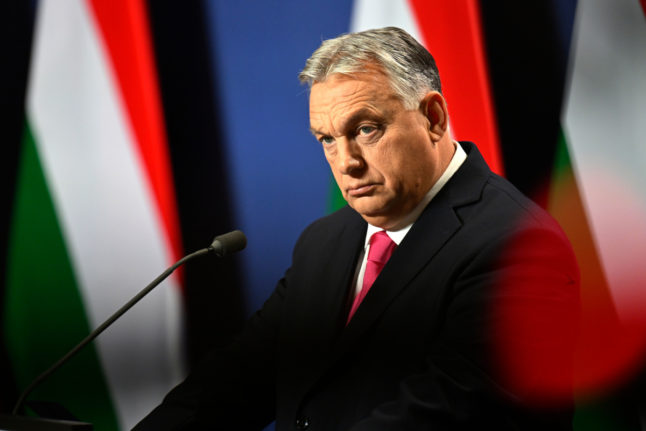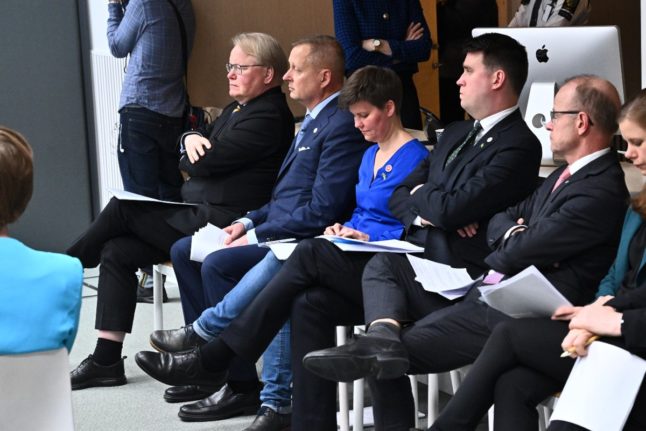MPs from the ruling Fidesz party and its KDNP allies boycotted an extraordinary sitting of parliament to debate Sweden’s Nato bid, which had been called for 1pm on Monday at the opposition’s request.
“Our opinion is that the ratification of Sweden’s Nato application can happen immediately once parliament begins its ordinary session. But for this to happen, a meeting of the two prime ministers is required in Budapest,” Máté Kocsis, group leader for the Fidesz party wrote on Facebook just before the session.
“If it’s important for the Swedes to join, then they need to come here, just like they went to Turkey”.
Budapest remains the last holdout to ratify the Nordic country’s bid to join the military alliance, following Turkey’s ratification in January.
Hungary has maintained close ties with the Kremlin after its invasion of Ukraine in February 2022, and while it has said it supports the Swedish bid in principle, it has been dragging its feet for months.
Prime Minister Viktor Orbán is delaying the vote due to his “personal vanity”, Agnes Vadai from the biggest opposition party told AFP.
Orbán seeks to “make headlines in the international press, while making a gesture to Russian President Vladimir Putin by undermining the unity of Nato and the EU,” she said.
The United States has ramped up pressure on Hungary to ratify Stockholm’s bid. On Friday, the US embassy publicly reminded Orbán that he promised to act “at the first opportunity” and “Monday’s session provides him with one”, it said in a statement.
Co-chairs of the US Senate’s Nato Observer Group warned that “both time and patience are wearing thin.”
Orbán has invited his Swedish counterpart to Hungary, citing the need to “build strong mutual trust” through “more intense political dialogue”.
Sweden’s Prime Minister Ulf Kristersson accepted the invitation, but rejected the idea of “negotiations” and “demands” concerning the country’s bid to join Nato.
Parliament is due to reconvene on 26 February, and ratification could take place quickly once it has received Viktor Orbán’s approval.
Turkey’s parliament last month ratified Sweden’s Nato membership after more than a year of delays that upset Western efforts to show resolve in the face of Russia’s war on Ukraine.
Nato membership applications require unanimous ratifications by all alliance members.



 Please whitelist us to continue reading.
Please whitelist us to continue reading.
Member comments